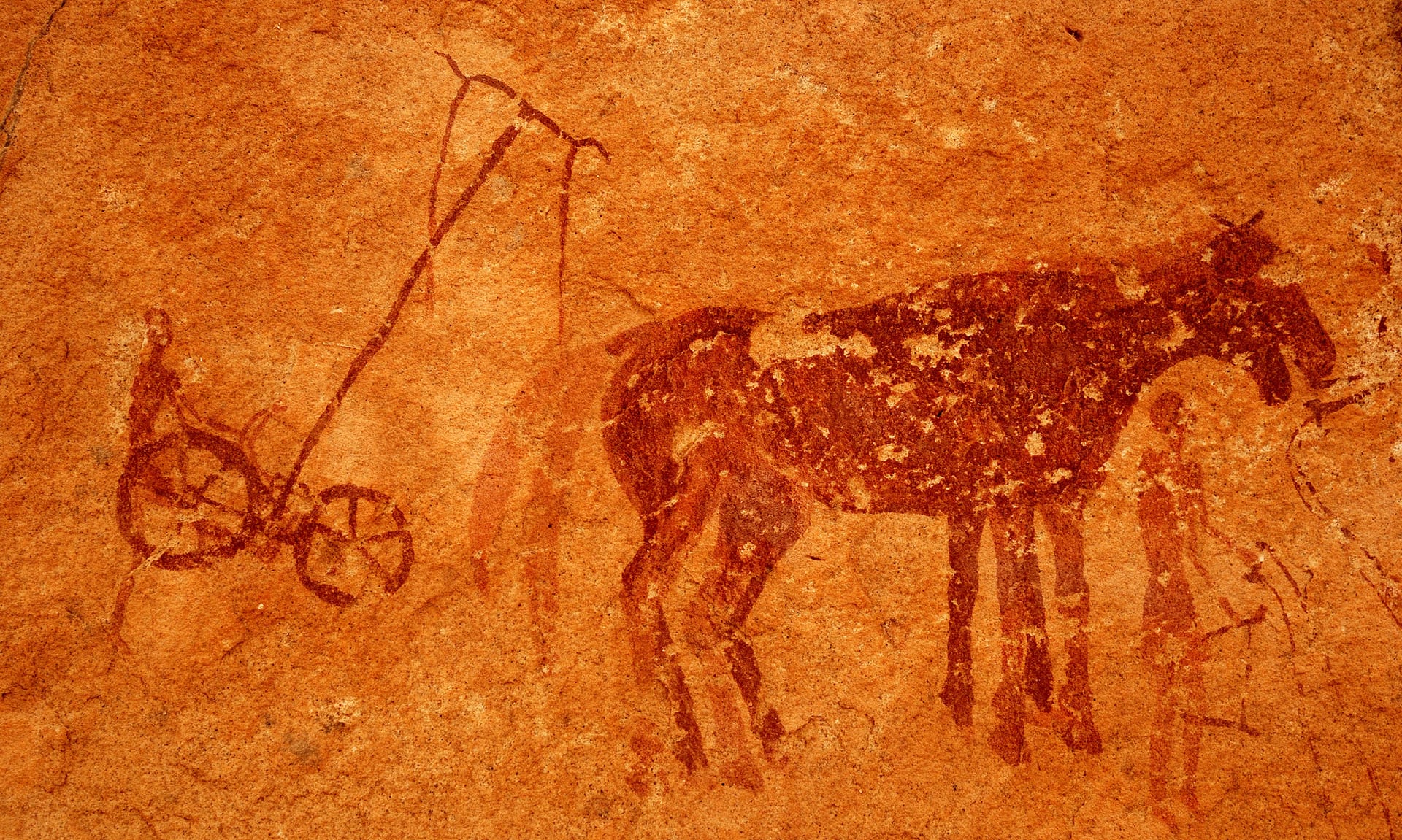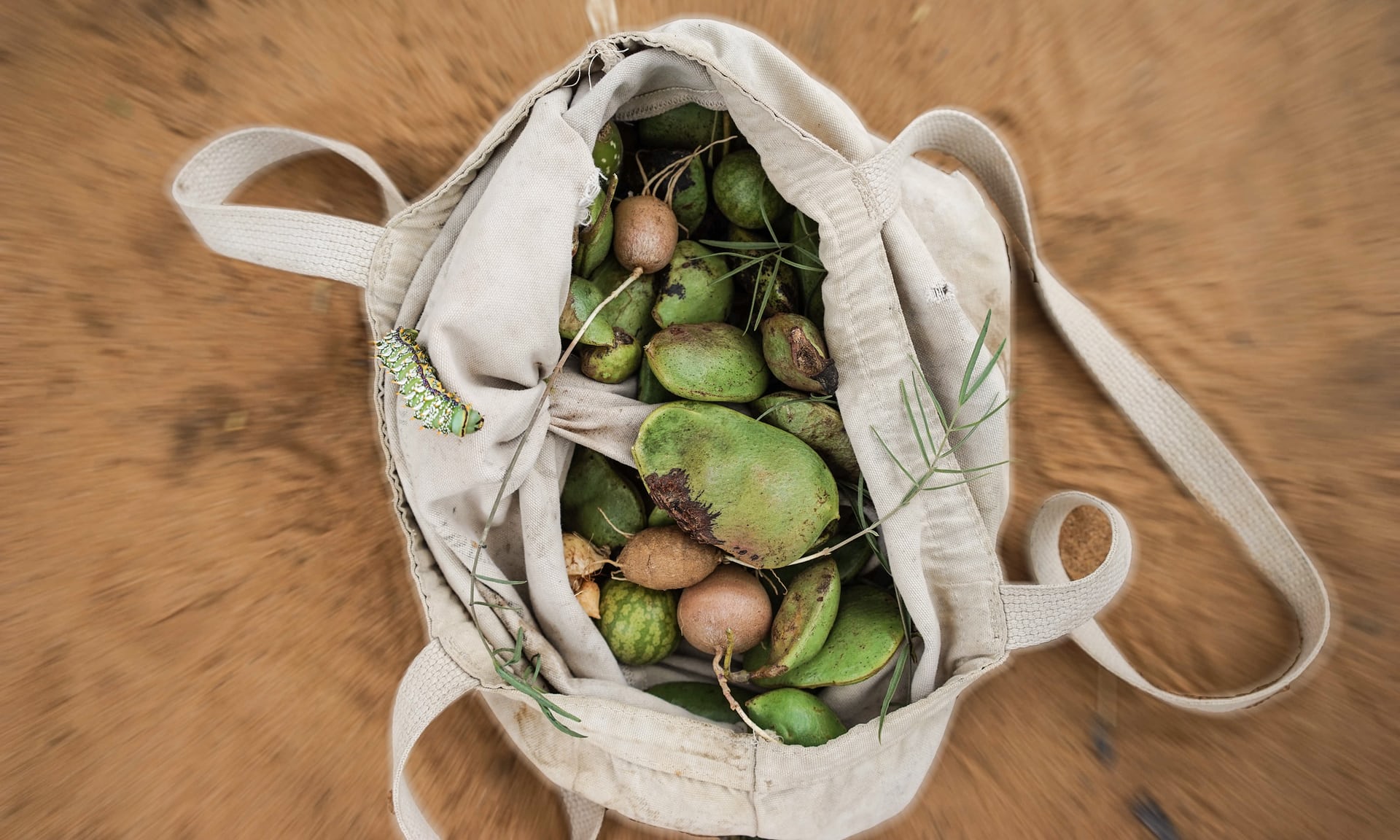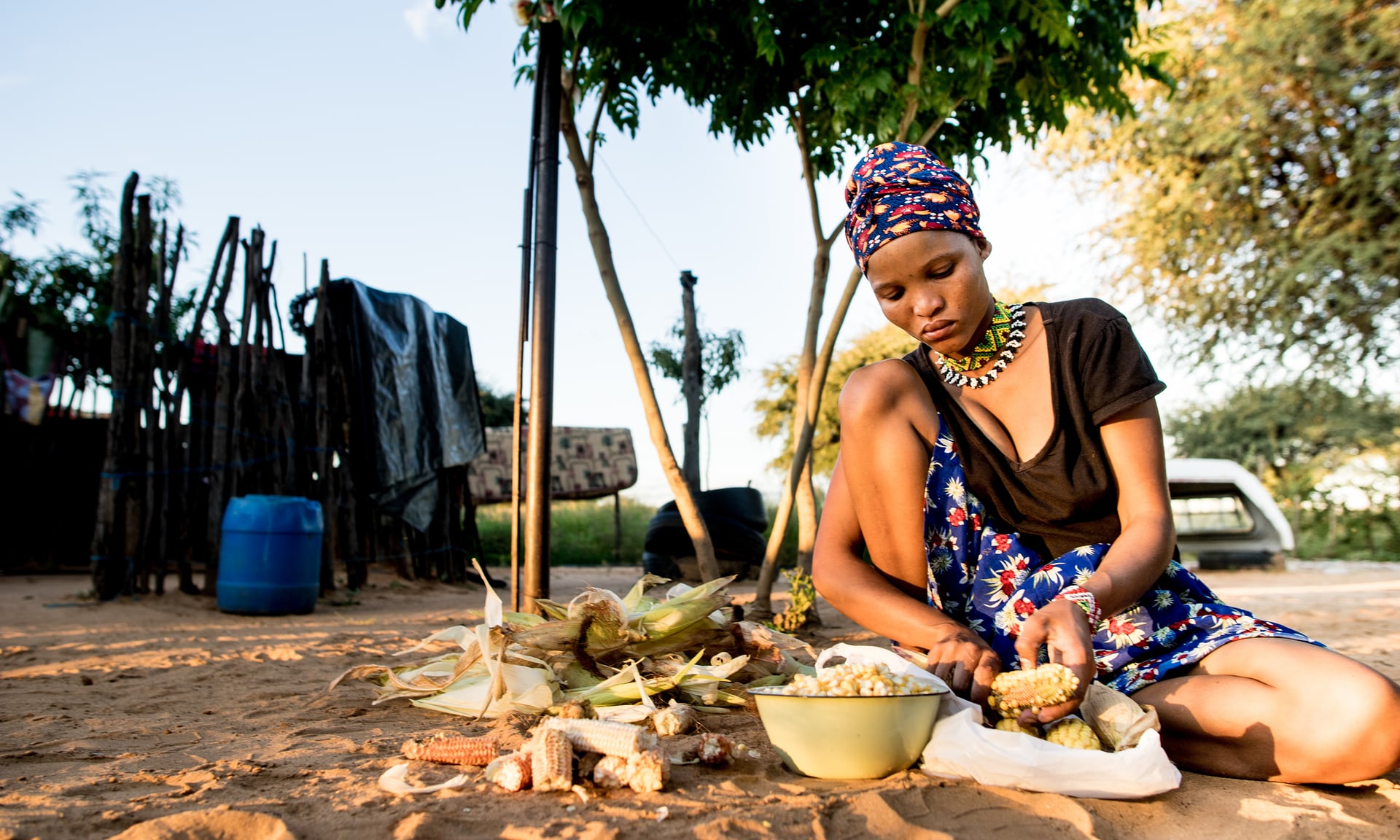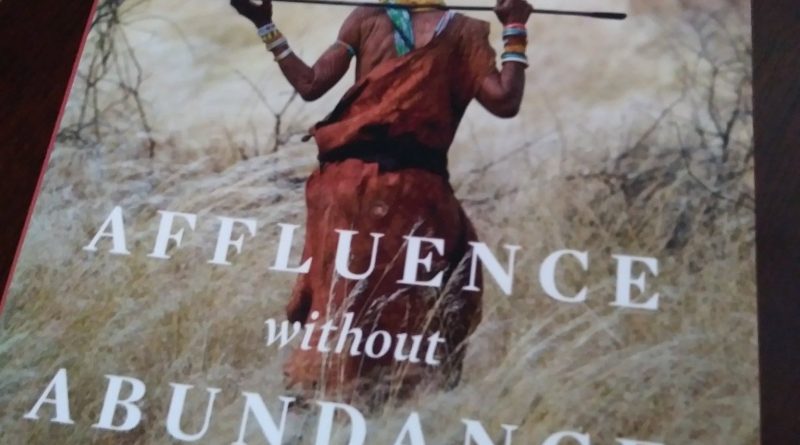How Neolithic farming sowed the seeds of modern inequality 10,000 years ago
«The prehistoric shift towards cultivation began our preoccupation with hierarchy and growth – and even changed how we perceive the passage of time.»
James Suzman resume su libro Afluencia sin Abundancia en este artículo (en inglés) de The Guardian. Es un texto fascinante que remite no sólo a señalar sobre la base de evidencias contundentes los cultivos que hemos aceptado como normales como expresión de un proceso destructivo generador o determinante de los males más profundos y recurrentes de todas nuestras sociedades, sino que además evoca otras prácticas agrícolas que fomentan la diversidad y respetan complejidades y ecosistemas. A nuestro juicio, la lógica patriarcal de dominio y control a partir de la agricultura de cultivos se nos aparece ante el espejo reclamando el retorno a lo más antiguo y obvio: convivir con la naturaleza y al hacerlo garantizar nuestra afluencia concreta sin abundancia destructiva, o lo que en los Andes del Valle Sagrado de los Incas conocen desde tiempos remotos como diversidad; NO cantidad, pero a hacerlo realidad para dejar atrás el agro-negocio, los campos arados y con ellos el afán de poder, las sociedades de clase, los ejércitos y las guerras y, claro, el capitalismo y el patriarcado. ¡Así Sí! Practicas y saberes. Pueblos en Camino.
This synopsis of Affluence Without Abundance by James Suzman (Bloomsbury Publishing) is a fascinating presentation of facts, too long ignored and seldom addressed. (Dominant) cultivation is an expression of rational human dominion over lands, necessarily ignoring, overwhelming and destroying diversity and leading to social classes, power, power struggle, private property, generation of pests (agriculture, a pest in itself) and, of course, war. The obvious is exposed with evidence in a simple and easy to understand situations and facts. Diversity over quantity is the agricultural principle of the Quechua in the Sacred Valley of the Incas, while peasant farmers of the MST and agro ecology promotes in theory and practice diversity without dominion of territories and is based on principles that respect nature´s complexity, relations and rhythms. A 1 hectare farm in Contestado, Paraná, Brazil hosts 54 different agricultural species, feeds two families and provides surplus that can be exchanged for other goods. The three year old farm run by 2 brothers within MST recovers an essential way of life: nature knows its pace and establishes its ecosystems. Farmers weave themselves into this pace and complexity and remove themselves from the need to control through monocultures and crops. An essential presence rises spontaneously under such practices: matriarchy. Mother Earth as freedom and diversity within the pace of life itself. Nothing new, of course, but given the patriarchal assumption of agriculture whereby territories must be subdued by humans, this, our oldest memory, being part of life, becomes and new argument for societies whose history has taken off from nature as though a species, human, could establish itself as separate from nature and attempt to gain control over it. Such is the fate of Patriarchy and Capitalism: destruction by subjugation. The beauty is that in order to enter this discussion, one has to protect and engage in diversity and generate affluence without abundance concretely and territory by territory. ¡Así Sí! Prácticas y saberes. Pueblos en Camino.
How Neolithic farming sowed the seeds of modern inequality 10,000 years ago

Rock paintings of Neolithic farming in Tassili de Maghidet, Libya.
Photograph: Roberto Esposti/Alamy
Most people regard hierarchy in human societies as inevitable, a natural part of who we are. Yet this belief contradicts much of the 200,000-year history of Homo sapiens.
In fact, our ancestors have for the most part been “fiercely egalitarian”, intolerant of any form of inequality. While hunter-gatherers accepted that people had different skills, abilities and attributes, they aggressively rejected efforts to institutionalize them into any form of hierarchy.
So what happened to cause such a profound shift in the human psyche away from egalitarianism? The balance of archaeological, anthropological and genomic data suggests the answer lies in the agricultural revolution, which began roughly 10,000 years ago.
The extraordinary productivity of modern farming techniques belies just how precarious life was for most farmers from the earliest days of the Neolithic revolution right up until this century (in the case of subsistence farmers in the world’s poorer countries). Both hunter-gatherers and early farmers were susceptible to short-term food shortages and occasional famines – but it was the farming communities who were much more likely to suffer severe, recurrent and catastrophic famines.
Hunting and gathering was a low-risk way of making a living. Ju/’hoansi hunter-gatherers in Namibia traditionally made use of 125 different edible plant species, each of which had a slightly different seasonal cycle, varied in its response to different weather conditions, and occupied a specific environmental niche. When the weather proved unsuitable for one set of species it was likely to benefit another, vastly reducing the risk of famine.
As a result, hunter-gatherers considered their environments to be eternally provident, and only ever worked to meet their immediate needs. They never sought to create surpluses nor over-exploited any key resources. Confidence in the sustainability of their environments was unyielding.
 The Ju/’hoansi people have lived in southern Africa for hundreds of thousands of years.
The Ju/’hoansi people have lived in southern Africa for hundreds of thousands of years.
Photograph: James Suzman
In contrast, Neolithic farmers assumed full responsibility for “making” their environments provident. They depended on a handful of highly sensitive crops or livestock species, which meant any seasonal anomaly such as drought or livestock disease could cause chaos.
And indeed, the expansion of agriculture across the globe was punctuated by catastrophic societal collapses. Genomic research on the history of European populations points to a series of sharp declines that coincided first with the Neolithic expansion through central Europe around 7,500 years ago, then with their spread into north-western Europe about 6,000 years ago.
However, when the stars were in alignment – weather favourable, pests subdued, soils still packed with nutrients – agriculture was very much more productive than hunting and gathering. This enabled farming populations to grow far more rapidly than hunter-gatherers, and sustain these growing populations over much less land.
But successful Neolithic farmers were still tormented by fears of drought, blight, pests, frost and famine. In time, this profound shift in the way societies regarded scarcity also induced fears about raids, wars, strangers – and eventually, taxes and tyrants.
 The Ju/’hoansi traditionally made use of 125 different edible plant species.
The Ju/’hoansi traditionally made use of 125 different edible plant species.
Photograph: James Suzman
Not that early farmers considered themselves helpless. If they did things right, they could minimize the risks that fed their fears. This meant pleasing capricious gods in the conduct of their day-to-day lives – but above all, it placed a premium on working hard and creating surpluses.
Where hunter-gatherers saw themselves simply as part of an inherently productive environment, farmers regarded their environment as something to manipulate, tame and control. But as any farmer will tell you, bending an environment to your will requires a lot of work. The productivity of a patch of land is directly proportional to the amount of energy you put into it.
This principle that hard work is a virtue, and its corollary that individual wealth is a reflection of merit, is perhaps the most obvious of the agricultural revolution’s many social, economic and cultural legacies.
From farming to war
The acceptance of the link between hard work and prosperity played a profound role in reshaping human destiny. In particular, the ability to both generate and control the distribution of surpluses became a path to power and influence. This laid the foundations for all the key elements of our contemporary economies, and cemented our preoccupation with growth, productivity and trade.
Regular surpluses enabled a much greater degree of role differentiation within farming societies, creating space for less immediately productive roles. Initially these would have been agriculture-related (toolmakers, builders and butchers), but over time new roles emerged: priests to pray for good rains; fighters to protect farmers from wild animals and rivals; politicians to transform economic power into social capital.
A recent research paper examining inequality in early Neolithic societies confirms what early-20th century anthropologists already knew, on the basis of comparative studies of farming societies: that the greater the surpluses a society produced, the greater the levels of inequality in that society.
The new research maps the relative sizes of people’s homes in 63 Neolithic societies between 9000BC and 1500 AD. It finds a clear correlation between levels of material inequality – based on the size of household dwellings in each community – and the use of draught animals, which enabled people to put far greater energy into their fields.
Of course, even the most hard-working early Neolithic farmers learnt to their cost that the same patch of soil could not keep producing abundant harvests year after year. Their need to sustain ever-larger populations also set in motion a cycle of geographic expansion by means of conquest and war.
 The Ju/‘hoansi, who once depended solely on hunting and gathering, now rely ever more on subsistence farming.
The Ju/‘hoansi, who once depended solely on hunting and gathering, now rely ever more on subsistence farming.
Photograph: James Suzman
Thanks to studies of observed interactions between 20th-century hunter-gatherers such as the Ju/’hoansi and their farming neighbours in Africa, India, the Americas and south-east Asia, we now know that agriculture spread through Europe by the aggressive expansion of farming populations, at the expense of established hunter-gather populations.
The agricultural revolution also transformed the way humans think about time. Seeds are planted in spring to be harvested in autumn; fields are left fallow so they may be productive the following year. Thus farming-based societies created economies of hope and aspiration, in which we focus almost unerringly on the future, and where the fruits of our labour are delayed.
But it’s not only our work that is future-oriented: so much of modern life is a tangle of social goals and often-impossible expectations shaping everything from our love-lives to our health. Hunter-gatherers, by contrast, only worked to meet their immediate needs; they neither held themselves hostage to future aspirations, nor claimed privilege on the basis of past achievements.
Understanding how the agricultural revolution transformed human societies was once no more than a question of intellectual curiosity. Now, though, it has taken on a more practical and urgent aspect. Many of the challenges created by the agricultural revolution, such as the problem of scarcity, have largely been solved by technology – yet our preoccupation with hard work and unrestrained economic growth remains undimmed. As environmental economists remind us, this obsession risks cannibalizing our – and many other species’ – futures.
So it is worth recognizing that our current social, political and economic models are not an inevitable consequence of human nature, but a product of our (recent) history. That knowledge could free us to be more imaginative in changing the way we relate to our environments, and one another. Having spent 95% of Homo sapiens’ history hunting and gathering, there is surely a little of the hunter-gatherer psyche left in all of us.
James Suzman
The Guardian
Tuesday 5 December 2017 09.00 GMT Last modified on Tuesday 5 December 2017 09.02 GMT
https://www.theguardian.com/inequality/2017/dec/05/how-neolithic-farming-sowed-the-seeds-of-modern-inequality-10000-years-ago
Affluence Without Abundance by James Suzman (Bloomsbury Publishing) is available from the Guardian Bookshop at a saving of 15% on RRP
If you have experiences relating to this article that you’d like to share, please email us at inequality.project@theguardian.com


